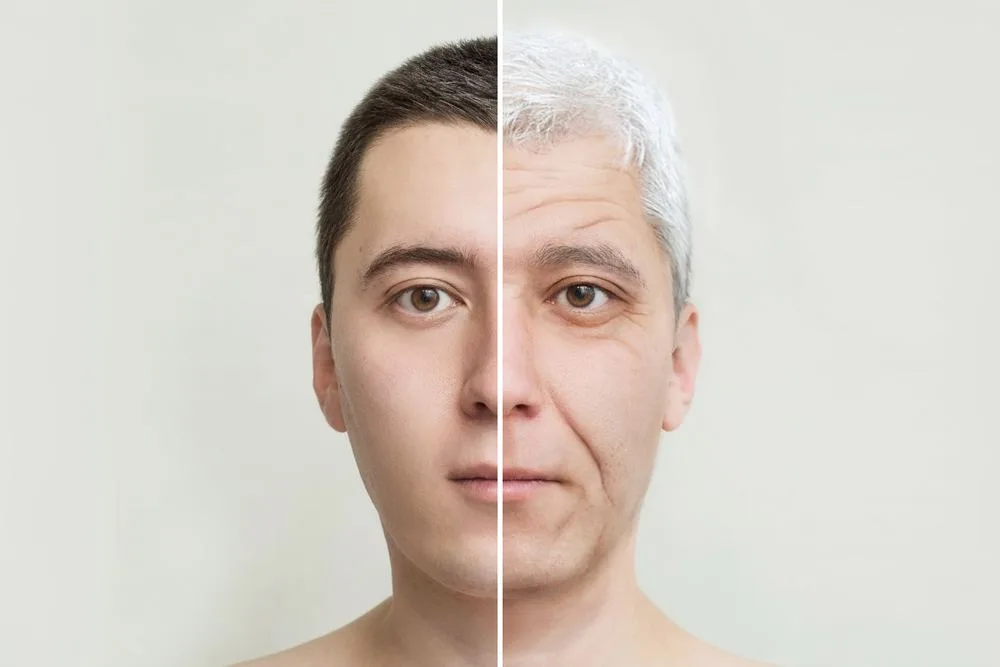How old are you? Yes, but how old are you really? Confused? When we speak of our age, we usually refer to the number of years we’ve been alive on Earth, opting to often subtract a few years. However, if you’re hoping to enjoy the rest of your years in good health, then you need to be more concerned about your epigenetic age.
What Is Epigenetic Aging?
Epigenetic age is the biological age of an individual, based on the changes in their DNA. Essentially, it looks at how old you are on a biological level by examining specific markers in your DNA.
Taking to Instagram, self-proclaimed longevity lab rat, entrepreneur, and investor with over 20 years of experience, Derek Peterson shared that he had reduced his epigenetic age by almost 20 years,
“Reducing your epigenetic age can significantly mitigate the risk of death and disease by altering gene expression patterns associated with aging and related ailments.”
As changes in your DNA have been acknowledged as a hallmark of aging, monitoring your epigenetic age can help on your journey to improved healthspan and longevity. An accelerated epigenetic age, which is when your epigenetic age is older than your chronological age, has been associated with an increased risk of later-life diseases, like cardiovascular diseases and diabetes, and all-cause mortality.
Peterson explains that epigenetic age can be accelerated by stress, poor diet, lack of exercise, and other detrimental habits. Thus, working to reduce it can lead to improved cellular function, reduced inflammation, enhanced immune response, and ultimately a lower susceptibility to age-related illnesses such as cardiovascular diseases, cancer, and neurodegenerative disorders.
4 Ways To Reduce Epigenetic Age
1. Regular exercise
Staying active can improve your health in many ways, including on an epigenetic level, as research has found physical activity may slow down epigenetic aging.

thederekpeterson/instagram
In regard to his routine, Peterson shared that he does strength training five times a week and two cardio sessions a week. Strength training can include lifting weights, squats, push-ups, and heavy gardening work, whereas cardio sessions can include dancing, burpees, swimming and cycling.
2. Balanced nutrition
Your epigenetic age is what you eat, so you may want to adopt a healthy and balanced diet.
A recent study published in JAMA Network Open examined the dietary patterns of 342 Black and White women at midlife. Per the findings, those who followed a diet that emphasized the consumption of fruits, vegetables, whole grains, nuts and seeds, and legumes had younger epigenetic ages, whilst those with diets featuring high added sugar intakes had increased epigenetic age.
3. Stress management
Do you ever feel older than you are after a stressful event? Well, there’s a biological explanation for that.
Previous research has found an association between cumulative life stress exposure and accelerated epigenetic aging, which shows the importance of adequate stress management.
I’ll admit that I’ve probably elevated my epigenetic age due to the past year’s stressors, but I can combat this by engaging in yoga, journaling, meditation, hiking and listening to my favourite tunes.
4. Adequate sleep
Healthy sleep is paramount for optimal health and longevity, and the disruption to this can be detrimental. In fact, a recent study published in Clinical Epigenetics found a strong link between declining sleep quality, especially in poor sleepers, and accelerated epigenetic aging, with risk of metabolic syndrome.
To improve your sleep quality, Dr. Yashica Khalawan, a South African-based general practitioner, suggests the following:
- Eat dinner 3 hours before bedtime.
- 1 hour before bedtime, switch off all devices. Limit liquid intake to avoid bathroom trips.
- Listen to relaxing music and take a warm bath/shower. The cooling of body temperature helps signal sleep.
- Create an environment that supports sleep:
- Room temp 68 degrees Fahrenheit (ca. 20 °C)
- Darken the room
- Sound machine to block out outside noise
- Invest in a quality mattress and pillow that supports the alignment of the spine
- During the night, avoid checking the time, as this increases sleep anxiety.
Want to know more?
While it may not affect your epigenetic age, balancing your hormones and combatting estrogen imbalance is important for your health. That said, biohacker, health consultant and New York Times bestselling author Ben Greenfield shared 6 ways to regulate estrogen imbalance and hormonal health.
References
Chiu, D.T., Hamlat, E.J., Zhang, J., Epel, E.S. and Laraia, B.A. (2024). Essential Nutrients, Added Sugar Intake, and Epigenetic Age in Midlife Black and White Women: NIMHD Social Epigenomics Program. JAMA Network Open, [online] 7(7), p.e2422749. doi:https://doi.org/10.1001/jamanetworkopen.2024.22749
Faul, J. D., Kim, J. K., Levine, M. E., Thyagarajan, B., et al. (2023). Epigenetic-based age acceleration in a representative sample of older Americans: Associations with aging-related morbidity and mortality. Proceedings of the National Academy of Sciences, 120(9), e2215840120. https://doi.org/10.1073/pnas.2215840120
Fransquet, P. D., Lacaze, P., Saffery, R., Shah, R. C., et al. (2021). Accelerated Epigenetic Aging in Peripheral Blood does not Predict Dementia Risk. Current Alzheimer Research, 18(5), 443. https://doi.org/10.2174/1567205018666210823100721
Fraszczyk, E., L. Thio, C. H., Wackers, P., T. Dollé, M. E., et al. (2022). DNA methylation trajectories and accelerated epigenetic aging in incident type 2 diabetes. GeroScience, 44(6), 2671-2684. https://doi.org/10.1007/s11357-022-00626-z
Lee, HS., Kim, B. & Park, T. (2024). The association between sleep quality and accelerated epigenetic aging with metabolic syndrome in Korean adults. Clin Epigenet 16, 92. https://doi.org/10.1186/s13148-024-01706-x
Pottinger, T.D., Khan, S.S., Zheng, Y. et al. (2021). Association of cardiovascular health and epigenetic age acceleration. Clin Epigenet 13, 42. https://doi.org/10.1186/s13148-021-01028-2
U. Fox, F. A., Liu, D., B. Breteler, M. M., & Aziz, N. A. (2023). Physical activity is associated with slower epigenetic ageing—Findings from the Rhineland study. Aging Cell, 22(6). https://doi.org/10.1111/acel.13828
Zannas, A.S., Arloth, J., Carrillo-Roa, T. et al. (2015). Lifetime stress accelerates epigenetic aging in an urban, African American cohort: relevance of glucocorticoid signaling. Genome Biol 16, 266. https://doi.org/10.1186/s13059-015-0828-5



![women [longevity live]](https://longevitylive.com/wp-content/uploads/2020/01/photo-of-women-walking-down-the-street-1116984-100x100.jpg)










